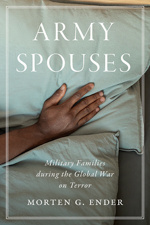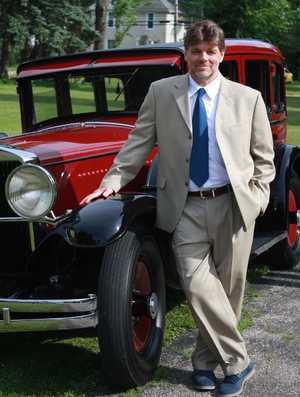Today, we are happy to bring you our conversation with Morten G. Ender, author of Army Spouses: Military Families during the Global War on Terror.
What inspired you to write this book?
I study the military institution in all its forms. So, I am inspired to go where the soldiers, spouses, and their children go. Soon after 9/11 I came to the realization that the Global War on Terror would be my generation’s war. My mentors and their mentors had studied WWII, Vietnam, and peacekeeping missions in the Middle East, north Africa, and Haiti. I felt the calling to bring new knowledge to these GWOT experiences. I certainly did not expect we’d be at this for more the 20 years. I began studying the various constituents of the wars over time including American college students, Iraqi adults, Iraqi adolescents, American soldiers, and eventually have concluded with Army spouses.
What did you learn and what are you hoping readers will learn from your book?
I learned that today’s military spouses are not your parents or grandparents’ spouses who experienced earlier wars and separations. They are a new generation in a new era. They experienced much of the same hardships and coping strategies of earlier generations spouses; but their experiences are unique and perhaps even more challenging. In particular, they have the added dimensions of a range of informal and formal support services, dependent children and adolescents, living abroad during the war, experiencing live television of war, and being closer to the wars and their uniformed spouse, via social and communication media, than at any time since the Civil War and taking a carriage to the front.
What surprised you the most in the process of writing your book?
What surprised me most about the process of writing the book was the abundance of data I had accumulated and my ability to condense it down to something cogent and shareable with readers. I’m amazed by the bulk of interview data. I cut about 100 pages of material from the book—I’m a bit bowled over that I could cut it down. I kept telling myself what a psychologist friend and colleague told me long ago while I was a graduate student: the first rule of research is, “no one thinks your work is as interesting as you do.” Meaning, it is necessary to make it thought-provoking and palatable for your reader. And do it without compromising the social science—a delicate balance.
What’s your favorite anecdote from your book?
I grew up in an enlisted Army family. I am probably biased to junior enlisted soldiers and spouses. But a LT’s wife interview in 2003 really hit home. I have taught a Marriage and Family course at University of North Dakota and West Point across four decades. Cadets at West Point can’t be married, and many do so in the months after graduation. Interviewing the LT’s wife—within a year of his graduation and getting the backstage story from graduation day up through her watching him on television in a live war zone moved me. I am pleased portions of her interview made the final edit. Her earnest quotes show up in the access and equity to communication devices section of the “He Has a Laptop” chapter.
What’s next?
I’m stoked to be finishing up a second edition of our edited book titled Inclusion in the American Military: A Force for Diversity (Lexington Books). My editorial team and I are having the traditional chapters revised and updated and we’re adding three new chapters—immigrants, disability, and civilians—in the U.S. military. Additionally, we’re updating the introduction and conclusion. We’re hoping to make a compelling argument for the military case for diversity and inclusion. After that, I want to chill. I’ve grown weary after two decades of war. I need time to turn my mind to something sociologically soothing nonetheless still stimulating. But we’ll see. I’ll definitely be putting extra efforts into my artwork and attending art-and-craft fairs around the country and maybe abroad.





